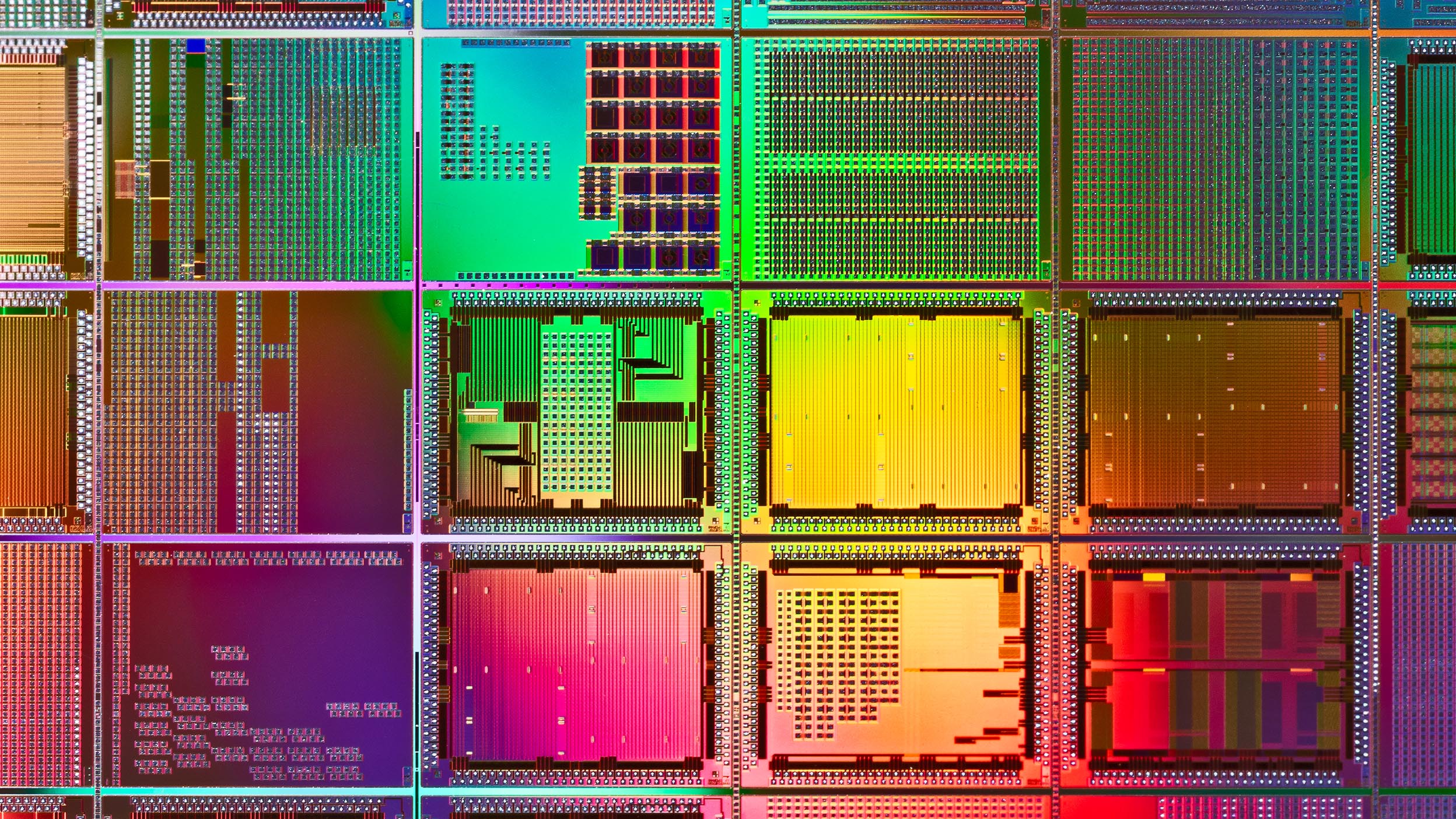
Investing Basics The power of diversification
The diversification of investments holds power in many environments, although it may not fully eliminate risk during market downturns.

When investing in U.S. stocks today, one of the most important themes to be aware of is market concentration with a few big players leading the way in profits and share performance.
In practical terms, some investors are concerned the market is currently top-heavy. This raises questions about diversification and concentration risks.
For investors in U.S. large-cap equity funds like Invesco QQQ ETF, understanding market concentration is key, even if it means simply doing nothing and sticking to a long-term mindset.
It’s true that by most measures, the U.S. market hasn’t been this concentrated among top stocks in decades. Today, the biggest companies—especially in the tech sector—are experiencing tailwinds from some significant trends.
Advances in artificial intelligence (AI), the rapid adoption of digital technologies, the expansion of e-commerce, and the post-pandemic shift toward remote and hybrid work are among the major forces driving unprecedented growth for these market leaders.1
AI has been a game changer, with potential that feels almost limitless. As companies dive into AI, from self-driving cars to virtual customer service, investors see growth potential in every corner of the tech industry. And while it’s not the only factor driving the market, the “wow factor” of AI can’t be denied.
Industries across the board are harnessing AI to reimagine their operations. In healthcare, AI is enabling breakthroughs in drug discovery and personalized medicine, with companies like Moderna using machine learning to accelerate vaccine development. Retail giants such as Costco are leveraging AI for demand forecasting and personalized customer experiences. In manufacturing, leaders like Tesla are deploying AI to optimize production processes and improve efficiency. Even in the entertainment industry, companies like Netflix use AI algorithms to enhance content recommendations and user engagement. This ripple effect highlights how AI's influence extends beyond tech creators to those innovating within traditional sectors.
Meanwhile, the adoption of digital technologies has fundamentally reshaped how businesses operate and interact with customers. Cloud computing platforms like those offered by Microsoft and Adobe have become indispensable, enabling companies to scale operations and enhance cybersecurity. Digital advertising has seen transformative growth, with companies like Meta revolutionizing the way brands connect with their audiences through AI-powered data insights.
These advancements are not only driving revenue growth for tech companies but are also setting the stage for widespread industry disruption.
E-commerce, too, has seen explosive growth, becoming a cornerstone of the digital economy. Companies like Amazon and MercadoLibre are capitalizing on the global shift toward online shopping, offering streamlined services and rapid delivery solutions. Meanwhile, firms like PepsiCo are integrating e-commerce into their direct-to-consumer strategies, creating new avenues for customer engagement. Digital payment platforms, such as PayPal, are further enabling this ecosystem, ensuring seamless and secure transactions for businesses and consumers alike.
Another factor is the shift to remote and hybrid work after the pandemic. As more people work from home, companies that provide digital solutions have flourished. Cloud computing, virtual meetings, and e-commerce are all booming. It’s no wonder these trends have fueled the growth of major tech companies.
The takeaway is that some of QQQ’s largest holdings—like Apple, Nvidia, Meta Platforms, and Amazon—have been incredibly profitable. Over the past decade, the profit share of the five largest companies in the U.S. has risen sharply, from 18.9% to 30.7% of the top 100 highest-earning companies.2
As a result, when it comes to investing in large-cap stocks in the U.S., market concentration has been a reality for several years now, including for investors who rely on low-cost, passively managed funds that track popular indexes. Invesco QQQ, for example, follows the Nasdaq-100® Index, which weights stocks by their size in the market, or market capitalization. And that approach has generated respectable returns over the past decade. QQQ has delivered an annualized return of 18.28% over the past 10 years, outperforming the 12.83% annualized return of the Russell 3000® Index, a benchmark considered representative of the U.S. stock market.3
Standardized performance - Performance quoted is past performance and cannot guarantee of comparable future results; current performance may be higher or lower. Visit invesco.com/performance for the most recent month-end performance. Investment returns and principal value will vary; you may have a gain or loss when you sell shares. Fund performance reflects fee waivers, absent which, performance data quoted would have been lower. Invesco QQQ’s total expense ratio is 0.20%. Index performance does not represent fund performance. Please keep in mind that high, double-digit and/or triple-digit returns are highly unusual and cannot be sustained.
Additionally, market concentration is tricky to define, and there’s no “normal” when it comes to the dominance of the largest stocks. In the past, we’ve seen periods when just a few big companies led the market, so this isn’t a new phenomenon for the Nadsaq-100 or QQQ. In fact, the top 10 holdings of QQQ have averaged a combined weight of 47.5% since 2000.4 In our opinion, the bottom line is that a reasonable response to market concentration may be to just stick to a long-term investing plan.
Although QQQ provides exposure to some of the market’s largest and most innovative companies, it’s not only about tech. The Nasdaq-100 Index tracks the 100 largest non-financial companies listed on the Nasdaq, which means QQQ offers a variety of sectors. Besides technology, QQQ includes leaders in healthcare, consumer discretionary, and industrials.
Market concentration is a big part of today’s investment landscape, and while it may feel daunting, it’s nothing new. Funds like Invesco QQQ ETF offer investors exposure to some of the biggest players, not just in tech but across several industries. By understanding these dynamics, investors can make more informed decisions in today’s market environment.
Select the option that best describes you, or view the QQQ Product Details to take a deeper dive.

The diversification of investments holds power in many environments, although it may not fully eliminate risk during market downturns.

Learn how some exchange-traded funds have endured decades of volatility.

See why long term investment strategies should factor in research and development. A company's R&D strategy may lead to durability and better returns.
NA3706748
Past performance is not a guarantee of future results. An investor cannot invest directly in an index.
This does not constitute a recommendation of any investment strategy or product for a particular investor. Investors should consult a financial professional/financial consultant before making any investment decisions.
The opinions expressed are those of the author, are based on current market conditions and are subject to change without notice. These opinions may differ from those of other Invesco investment professionals.
Growth stocks tend to be more sensitive to changes in their earnings and can be more volatile.
Russell 3000® Index includes those Russell 3000® companies with higher price-to-book ratios and higher forecasted growth values.
The price-to-book ratio considers how a stock is priced relative to the book value of its assets.
The Nasdaq-100® Index is a stock market index made up of equity securities issued by 100 of the largest non-financial companies listed on the Nasdaq stock exchange.
The Index and Fund use the Industry Classification Benchmark (“ICB”) classification system which is composed of 11 economic industries: basic materials, consumer discretionary, consumer staples, energy, financials, health care, industrials, real estate, technology, telecommunications and utilities.
Diversification does not guarantee a profit or eliminate the risk of loss.
Holdings are subject to change and are not buy/sell recommendations. As of 11/21/2024, NVIDIA Corp, Apple Inc, Microsoft Corp, Amazon.com Inc, Meta Platforms Inc, Tesla Inc, Alphabet Inc, PepsiCo Inc, Adobe Inc, and Intel Corp make up 8.81%, 8.57%, 7.59%, 5.24%, 4.84%, 4.07%, 4.98%, 1.39%, 1.41%, and 0.65% of Invesco QQQ ETF, respectively.